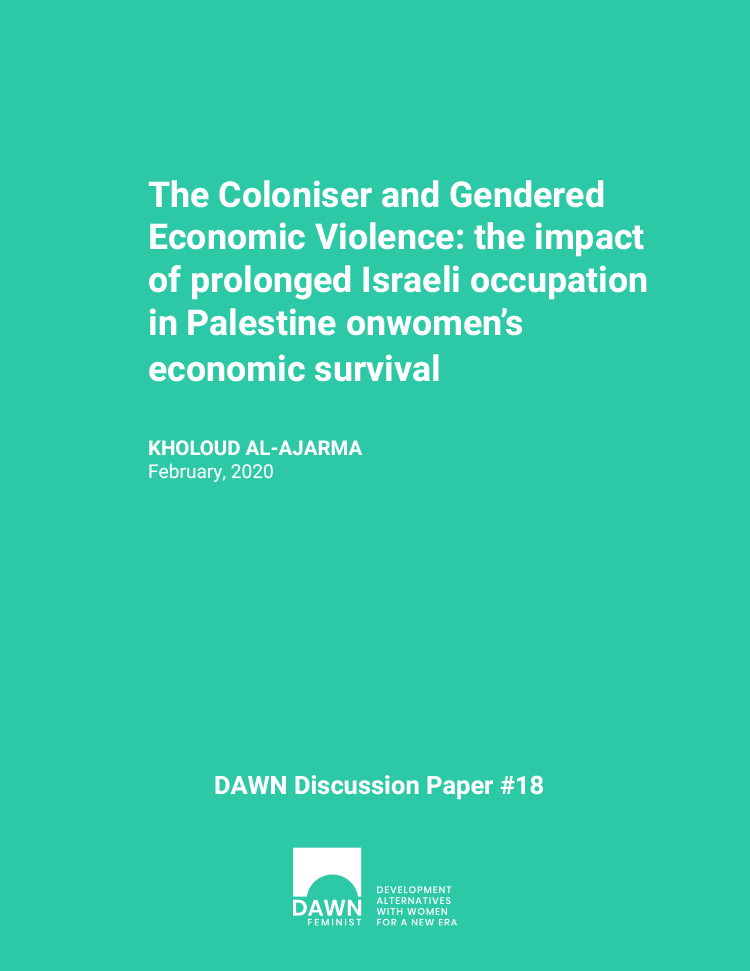Overview
When Israel occupied the West Bank and Gaza in 1967 in the wake of the Six Day War, the international community used the term “occupation” to describe the situation which followed. However, some 50 years later, this state of affairs no longer matches the general understanding of the term “occupation”, which is by definition short-lived. Many commentators are more accurately identifying what has happened to Palestine as a stage of settler colonialism. The towns and outposts built on Palestinian land, in contravention of international law, are called by many “settlements”, a rather benign word, but are more accurately defined by many influential thinkers as “colonies”. For the purpose of this article, I shall use the term “settlement” and “occupation” to reflect the dominant discourse. However, I recognise that an alternative narrative of settler-colonialism is gaining strength and recognition and I fully endorse this stronger analysis.
In 2018, the Palestinian Social and Economic Policies Monitor – Al Marsad, produced a short film that reflected experiences of the Palestinian female workers in ‘Israeli’ settlements or colonies, as they are more appropriately called. The film, titled “Bloody Basil” featured several female workers who mainly work in agricultural settlements in the Jordan valley. The women featured in the film spoke of their experiences and the violations of their rights as workers as a result of the occupation’s policies that confiscated Palestinian farmers’ lands and turned them into workers in the settlements. The women explain how they would leave their houses at 5 am, be picked up with other women in a small van and driven into the settlement. They described the work as exhausting and frustrating. They had to handle abusive treatment from supervisors and work under very difficult conditions. Almost all the women were controlled and made compliant by being told that if they did not want to work as instructed, there were many others who would take their place.
What “Bloody Basil” reflects is a glimpse of the Israeli violence against Palestinian women which is a routine aspect of their life under occupation. Various UN bodies have expressed concern about the human rights, humanitarian and security issues that occupation brings, with an emphasis on the situation of women. The Report of the Special Rapporteur on violence against women, its causes and consequences, on her mission to Israel submitted to the Human Rights Council in 2017 highlighted the linkage between the prolonged Israeli occupation and violence against women57. Both Palestinian men and women face numerous human rights violations inflicted on Palestinians, including property destruction, house demolitions, settler violence, forcible transfer as a form of collective punishment and targeting of human rights defenders58. Economically, the colonisation and occupation of Palestine (since 1948) – but more specifically after the occupation of the West Bank and Gaza in 1967 – have had a significant impact on the Palestinian people which manifested itself in the intensified denial of Palestinians’ human rights including access to land, water and natural resources. The detrimental Israeli measures against Palestinians also include blockades, control over markets, and restriction of movement.
In this case study, I focus on a specific segment of the Palestinian population: women workers in Israeli settlements. Drawing on interviews conducted mainly among Palestinian female workers in Israeli settlements, I argue that Israeli settlements, which are constructed on Palestinian lands and are deemed illegal under International Law, have a devastating impact on the lives of Palestinians in general and Palestinian women in particular. Due to the difficult economic conditions, lack of alternatives, high unemployment rates, and the gap in wages and quality of life between the Israeli and Palestinian economies, many Palestinian women find no option for employment other than to work in the settlements, under Israeli control, to support themselves and their families. I will reflect on the conditions in which those women find themselves and how the settlements’ economy contributes to greater marginalisation of Palestinian women and socioeconomic disadvantages. The settlements, sites of militarised political control, is the primary theatre of extraction, both of land, resources and labour of thousands of working-class Palestinians, including women.

